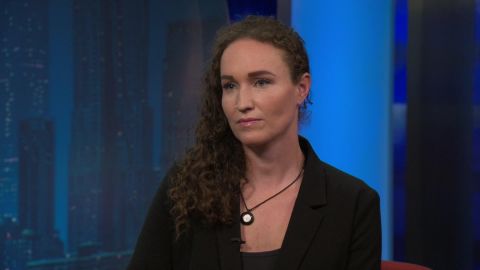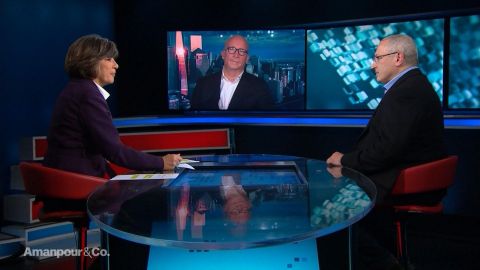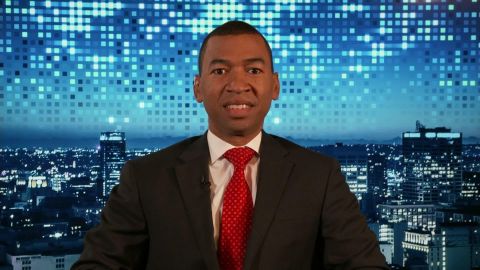Read Transcript EXPAND
CHRISTIANE AMANPOUR: Begin by telling us how you survived prison, because it was brutal.
MIKHAIL KHODORKOVSKY, EXILED RUSSIAN BUSINESSMAN (through translator): Well, in fact, prison, for anyone used to Soviet youth pioneer camps or the Soviet Army, for that matter, doesn’t actually differ that much. You understand, more or less, how things are structured. I have to admit, though, that I did enjoy one real advantage. I was roughly twice as old as the average prisoner. The average age of most prisoners was 23 and I was 40. And that, in prison, obviously affords you some respect, education as well, of course. But in brutal Russian prisons, you can see that the basic foundation of everything is violence, and many people under the influence of violence snap and do things that they would never have done in ordinary life.
AMANPOUR: And you did gain not just respect but, I guess, security also, by, as Alex said, going on hunger strikes to demand conditions for yourself but also for other members of I think Yukos who were also in prison and some other prisoners who were not, perhaps, getting some of the same treatment you were getting.
KHODORKOVSKY (through translator): Well, you know, in prison, you can really only get things if you put your life on the line. And you have to understand that once you’ve done that once, you will never be able to obtain anything else. And it was precisely for this reason that I had to think very careful about putting my life on the line for other prisoners. But I did that four times. And four times I was prepared to die unless my conditions were met, and I was successful all four times. And here, of course, outside support played an enormous part. Many people, in fact, many Russians who went to court and made demands on the government, and we managed to convince them. If that hadn’t happened, things would have turned out far worse for me.
AMANPOUR: Alex, how did you view the arc of his development as a character during your story-telling? And I guess I’ll just read something that you have said about, you know, when you look at these, you know, larger-than- life characters who you tell stories about, empathy is one of the key qualities. You say, “You have to empathize with people. Otherwise, you inhabit a view of the world that I don’t believe in, which is that there are good people and bad people, whereas I believe we are all a mixture of both.” How does this “Citizen K” fit into that structure that you’ve constructed?
GIBNEY: Well, the simple structure is rise, fall, rise. But in terms of the quote that you just mentioned, I mean, you know, Mikhail in the wild and tumble ’90s in Russia inhabited the ethos of the time, which was be as ruthless as possible in order to get as much money as possible, as he himself admitted to me. He said he thought of it as a game.
About This Episode EXPAND
Steven Reed, the first African American mayor-elect of Montgomery, Alabama, joins Christiane Amanpour to explain the to-do list he will tackle in office. Alex Gibney and Mikhail Khodorkovsky discuss the documentary “Citizen K.” Megan Phelps-Roper tells Michel Martin why she broke away from the Westboro Baptist Church.
LEARN MORE


